8. Get Out (2017, directed by Jordan Peele)
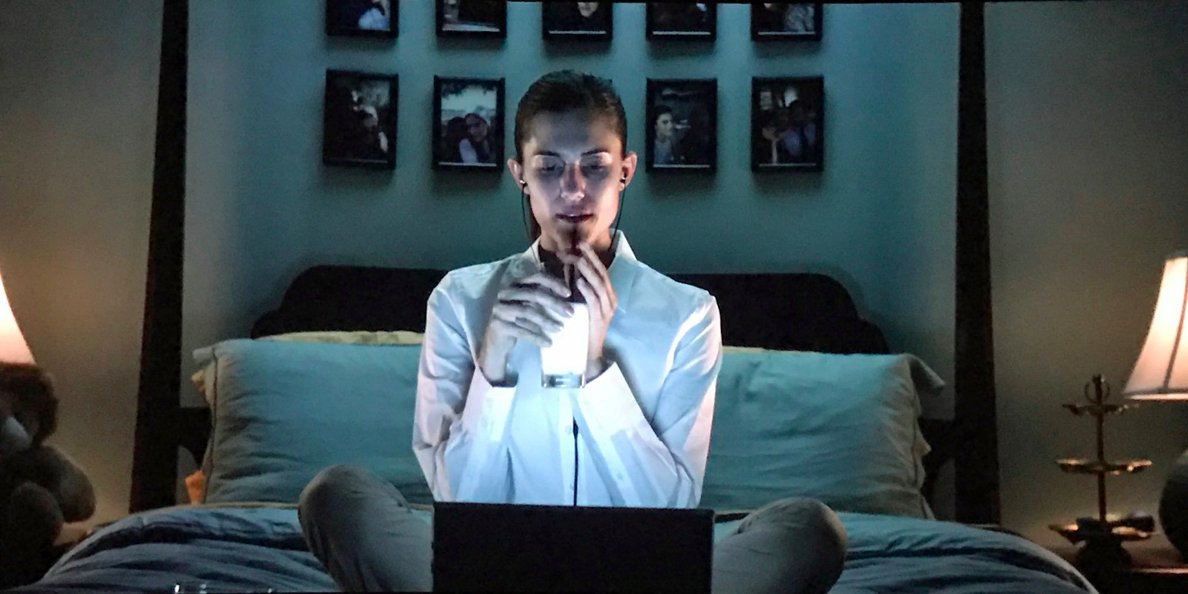
Incredibly horrific, intelligently satiric, profoundly funny, and deeply resonant for anyone who at all considers the issue of race in North America, Jordan Peele made an outstanding directorial debut with Get Out (which he also wrote, and earned an Oscar for his superlative efforts).
“The thing Get Out does so well – and the thing that will rankle with some viewers – is to show how, however unintentionally, these same people can make life so hard and uncomfortable for black people,” wrote The Guardian’s Lanre Bakare. “It exposes a liberal ignorance and hubris that has been allowed to fester. It’s an attitude, an arrogance which in the film leads to a horrific final solution, but in reality, leads to a complacency that is just as dangerous.”
Riffing on Stanley Kramer’s Guess Who’s Coming to Dinner (1967), Chris Washington (Daniel Kaluuya), with some well-placed reservations, reluctantly but good-naturedly accompanies his new girlfriend Rose Armitage (Allison Williams) for a weekend in the country with her upscale folks (Catherine Keener and Bradley Whitford). Knowing that the only other African Americans within screaming distance will be the Armitage’s servants, it is no wonder that Chris is nervous about how Rose’s family, no matter how liberal-minded, educated, and easy-going they claim to be.
Get Out is great as an uncomfortable comedy, but it excels at reconstituted horror movie hyperbole and pointed social commentary. Funny, frightening, and perpetually thought-provoking, Peele expertly provides a slow-build with some great twists, palatable payoffs, and plenty of wit.
7. Synecdoche, New York (2008, directed by Charlie Kaufman)
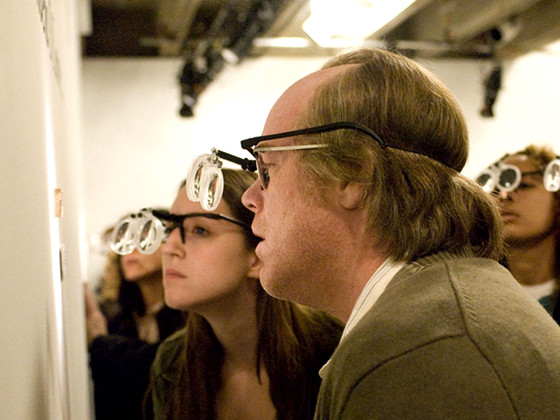
“Ambitious” doesn’t even begin to describe the directorial debut of Charlie Kaufman, the brilliant screenwriter behind such films as Being John Malkovich (1999), Adaptation (2002), Eternal Sunshine of the Spotless Mind (2004).
A postmodern meta melodrama that’s also part existential horror and aching romance as only a fan of Philip K Dick could detail, Kaufman goes all out telling the tale of hangdog theater director Caden Cotard (Philip Seymour Hoffman, brilliant). Abandoned by his wife and daughter, he seems to have been diagnosed with a strange disease where even his body wants to abandon him and completely shut down.
Living in Schenectady, New York, the direction that Caden’s life takes is deliberately byzantine and more than a little hard to follow (presumably deliberately so) as he gathers a cast of actors to manufacture his fractured opus “Simulacrum”, after receiving money through a MacArthur Fellowship. Soon there’s a play within a play, a wealth of doppelgängers, a house that’s forever on fire, impossibly detailed miniature worlds within worlds in a mockup of New York, and of course, oodles more.
“To say that [Synecdoche, New York] is one of the best films of the year or even one closest to my heart is such a pathetic response to its soaring ambition that I might as well pack it in right now,” wrote celebrated New York Times critic Manohla Dargis, adding: “Despite its slippery way with time and space and narrative and Mr. Kaufman’s controlled grasp of the medium, Synecdoche, New York is as much a cry from the heart as it is an assertion of creative consciousness. It’s extravagantly conceptual but also tethered to the here and now.”
6. Upstream Color (2013, directed by Shane Carruth)
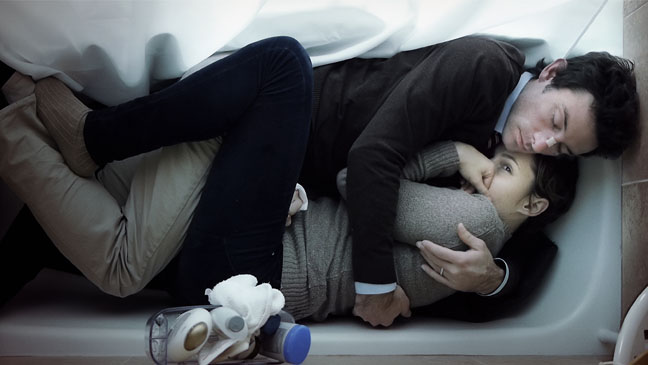
Shane Carruth’s inspired sci-fi follow-up to 2004’s Primer, Upstream Color, is an otherworldly experience that will make the right kind of adventurous viewer absolutely ecstatic and frequently fighting tears of joy and wonder when not wholly hypnotized by its dazzling visuals and bold narrative.
On the surface Upstream Color might sound peculiar and unnecessary as its premise could potentially be mistaken for pretentious experimental odds and ends, but truthfully it works best, perhaps, as a bridge between Stanley Kubrick’s 2001 and early Terrence Malick, in the best possible way.
Amy Seimetz shines as Alex, our put-upon protagonist who finds herself brainwashed into emptying her bank account by a thief (Thiago Martins) who uses a combination of drugs, parasites, and bizarre hypnagogic neuro-linguistic-type programming to dupe her. Alex eventually regains herself and learns she’s not the only one who has been manipulated in this way to similar dubious ends.
Drawn to Jeff (played by Carruth), the two are similarly uncertain of what they lost through their mind-meddling ordeal but, as their lives spiral and entwine, the film, like an amorous Möbius strip, outshines itself, and its heart reaches a hard fought and rather miraculous crescendo.
The artistry on hand is wondrous, with sequences of such aching, ingenious elegance I really wonder how Carruth even dreamt it all up, for it really is the stuff of dreams. Upstream Color ranks high as one of the most transformative and spellbinding cinematic experiences you’re likely to have. Only Carruth’s second film and already he has a pièce de résistance.
5. The Florida Project (2017, directed by Sean Baker)
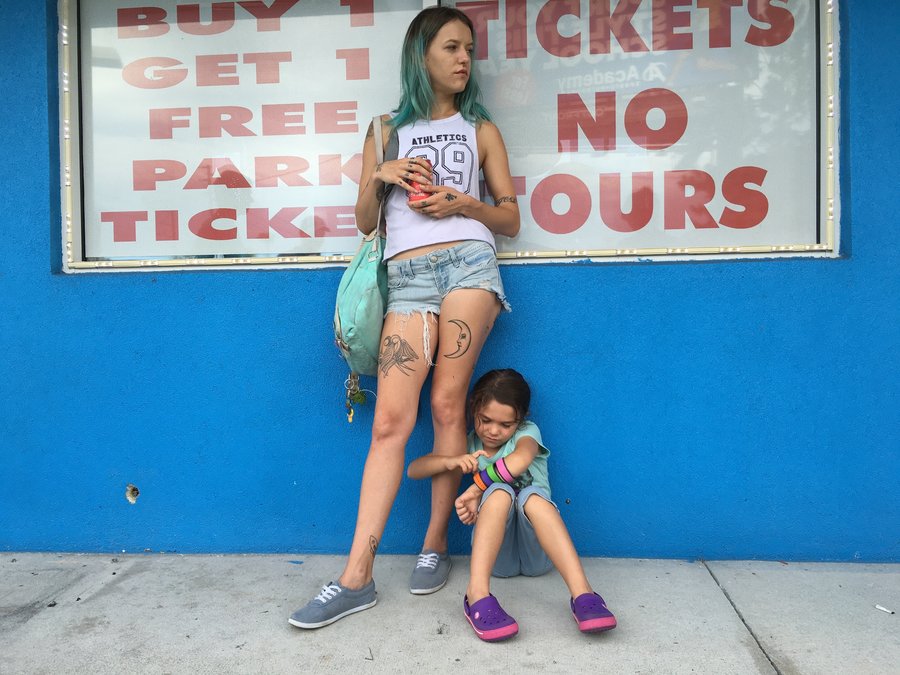
Sean Baker’s latest, The Florida Project, is a vivid tour-de-force film, which brings with it an illustrious new joie de vivre to the essentia of youth.
Set in a superannuated, and pastel colored corner of Orlando interstate, which Baker and cinematographer Alexis Zabe artfully reconstruct into a vibrant and gossamer-like playground that’s guaranteed to warm the most jaded moviegoer’s heart.
Presenting a poignant portrait of childhood as lovingly glimpsed through the eyes of Moonee (Brooklynn Prince), a smart-alecky six-year-old being raised by her unruly young mother, Halley (Bria Vinai) during summer vacation. The mother-daughter duo live week to week at a seedy roadside hotel, “The Magic Castle,” which is managed by the compassionate but crusty patriarch, Bobby (Willem Dafoe).
Baker, upgrading from shooting with iPhones as he did in his previous film, the amazing modern screwball comedy Tangerine (2015), presents an alternately endearing, upsetting, and occasionally romantically sentimental vision of tender age exploration and wonder on the sharp edge of adult misery.
Moonee, with her ragtag and bobtail buddies find humor and hoopla amidst abandoned homes, derelict fields, ice cream parlor parking lots, and laundromats. And while the grownup world of booze-fuelled fist fights, and fornication is never far off, it’s also a star-distance away from the play and pleasures of a spirited childhood’s point of view.
Dancing amidst squalor, The Florida Project is an utter joy, a celebration of aspiration and spectacle that will long be remembered. Here, in this heartfelt sphere of empathic understanding and picaresque perception we see a childhood, a motherhood, and an America that is both exhilarative and deeply profound.
4. Kill List (2011, directed by Ben Wheatley)
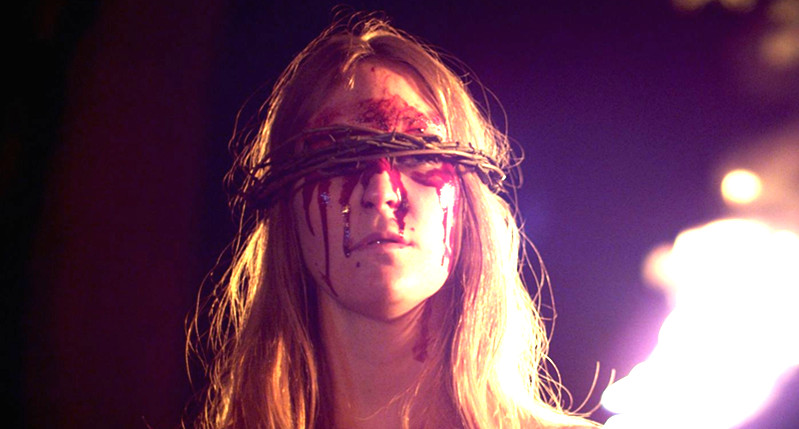
Of all the films that British filmmaker Ben Wheatley has made, it must be said that Kill List is the most flat out upsetting. It’s also the most enervating, fist-pumping, and gob-smacking, as it transforms before the viewer, gradually morphing from domestic drama to hitman/crime film to all out, full on horror. A relentless and tense thriller that subverts expectation at every conceivable turn, Kill List benefits from a deliberate slow burn start, establishing a mood and a tone that eventually and rewardingly ratchets tension and builds anxiety to the ultimate mad rush.
The story involves Jay (Neil Maskell) and Gal (Michael Smiley), longtime pals and former soldiers who are now contract killers. Little do either know that a new assignment they’ve agreed upon is going to lead them to the darkest possible place imaginable.
As the plot takes many unpredictable turns, humor is present to diffuse the mounting mental pressure, and Wheatley works the audience like a master, making us anxious, and uneasy at every sharp turn and nasty twist. The last half hour is all edge-of-your-seat suspense and the closer is as unforgettable as it is ultimately inexorable.
“Andy Stark, my producer, said to me, ‘make a horror film’,” Wheatley explained to Taste of Cinema during a junket for High-Rise in 2015. “I thought, if I’m gonna make a horror film I’m gonna make something that’s truly as fucking horrible as possible. So when I wrote the script I made a list of my nightmares. My son, who was three or four at the time, was tied up in that, and I was terrified at that kind of aspect of fatherhood and so put that in. I had these recurring nightmares about cults since I was a little kid so I put that in as well.”
Few British thrillers this century have been as atmospheric, effective, and artfully crafted as Kill List. Miss this film at your peril, but don’t see it alone, whatever you do. You’ve been warned.
3. Fish Tank (2009, directed by Andrea Arnold)

English filmmaker Andrea Arnold (Red Road [2006], American Honey [2016]) has a terrific track record of vibrant, uncompromising and wonderfully realized films, but perhaps none are as disquieting, emotionally rich and utterly raw as Fish Tank.
Here writer-director Arnold proves an astonishing talent in a story which concerns itself with fifteen-year-old Mia’s (Katie Jarvis, genius) fragile world, one turned on its ear when her mother, Joanne (Kierston Wareing) brings home a rascally new boyfriend, Connor (Michael Fassbender).
Fish Tank, arguably Arnold’s best film to date, is a youth-in-trouble masterpiece that is clearly and miraculously demonstrative of Arnold’s keen, clear, and uncanny observations of working-class realism; a bleak and melancholy milieu shared by the likes of Mike Leigh and Ken Loach, Arnold’s spiritual forebears.
An incredibly muscular film on every level––Arnold’s characters especially feel energized and authentic, and you want nothing but the best for them––with a sharp cinéma-vérité vibe, a self-improvised spirit that would make Cassavetes cheer, and an elusive and expansive feeling of innovation and fatalism that puts the film into the upper echelon of world cinema.
So few films are this staggeringly sublime and intensely realized. Easily one of the best films of the 21st century by a visionary and formative filmmaker who is certain to continue amassing a serious, staggering, and considerable body of work.
2. Under the Skin (2013, directed by Jonathan Glazer)
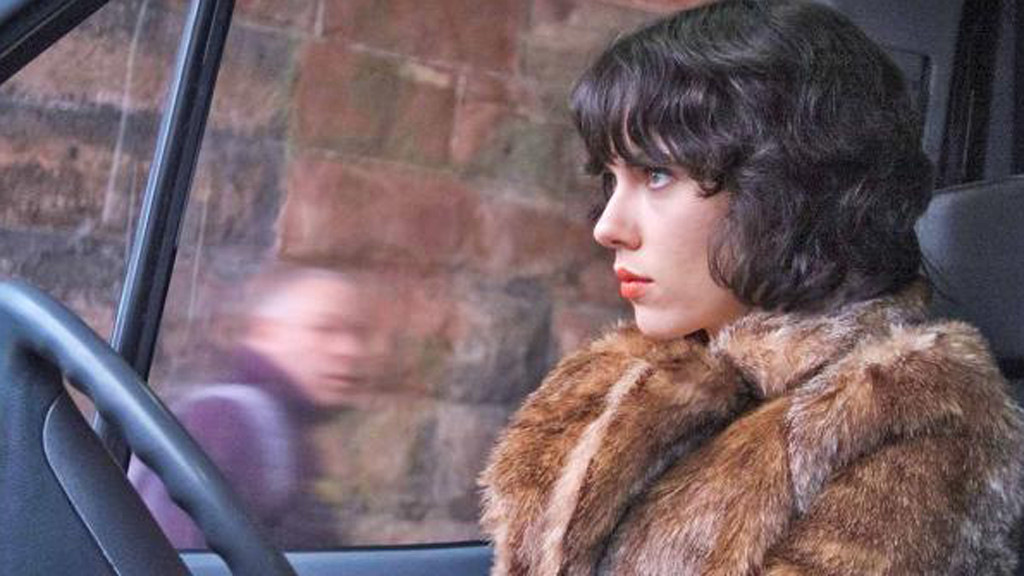
A deeply thoughtful, strangely polarizing, and profoundly shocking exploration of civilization and humanity, Jonathan Glazer spent nearly a decade on this dark hearted epic. Comparisons to Stanley Kubrick and Andrei Tarkovsky are appropriate and easily supported, as are the carefully constructed visual sensibilities and quasi-documentary leanings of Claire Denis and Lynne Ramsay.
Loosely using Dutch author Michel Faber’s satirical 2000 sci-fi novel “Under the Skin” as the alpha of this deep, metaphysical and mercurial treatise on, well, humanity, Glazer has surpassed expectation and made one of this century’s most stirring cinematic works.
Star Scarlett Johansson is outstanding in a controlled and calculating role as she moves from childlike cherub to rouge-lipped iconoclast, all while saying very little at all. Seducing working-class blokes at random, she lures them into her alien lair with terrifying and deeply troubling results. Her motives remain unclear in what amounts to an unaffected nightmare.
Mica Levi’s score adds heft to Glazer’s artfully arranged visual compositions, culminating in a third act extravaganza of upset and intrigue.
An elaborate subterfuge of a film, ethereal and arty all the way, it’s an unnerving, unpredictable, and sense-rattling experience that will alternately haunt and reward the patient viewer for days afterwards. Under the Skin does just what its provocative title promises, make no mistake. And whether it frustrates you, or moves you immeasurably, it’s also something of a masterpiece.
1. Shaun of the Dead (2004, directed by Edgar Wright)
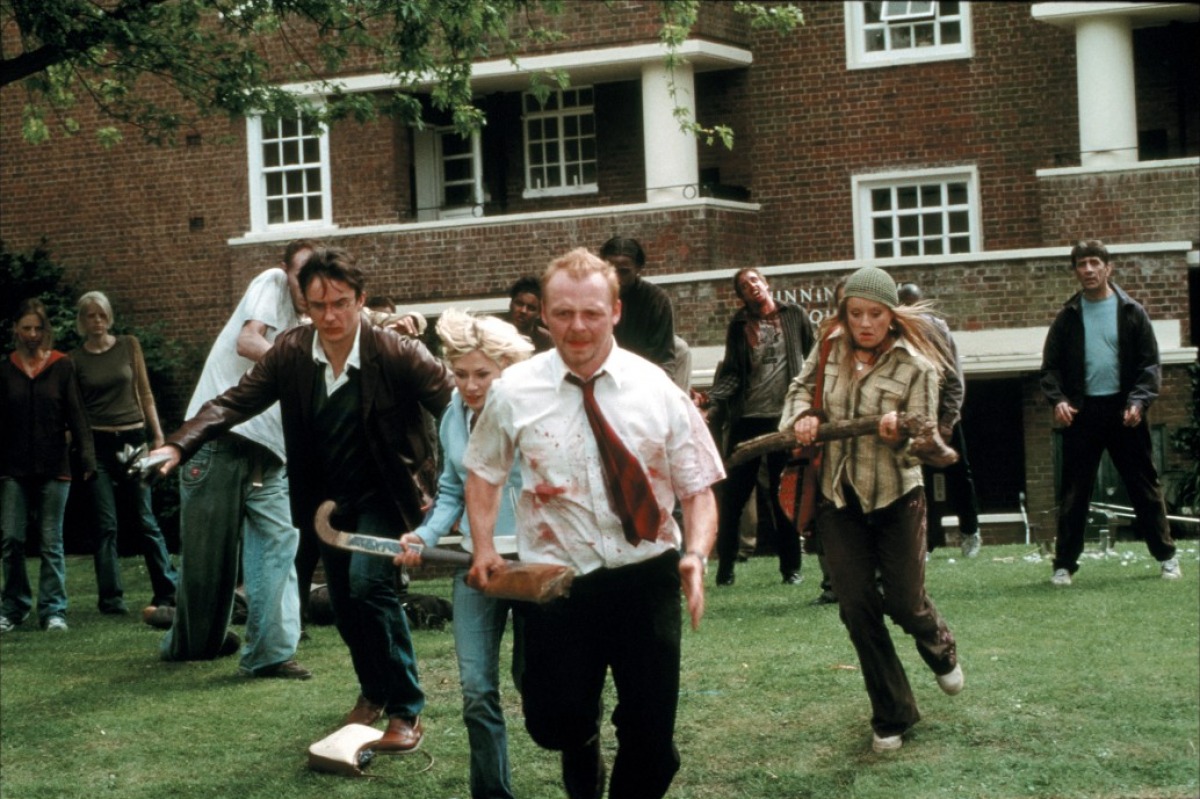
“Take car. Go to Mum’s. Kill Phil – ‘Sorry.’ – grab Liz, go to the Winchester, have a nice cold pint, and wait for all of this to blow over. How’s that for a slice of fried gold?”
If trying to get his act together and be a decent boyfriend to his unfairly ignored girlfriend wasn’t enough of a task for stagnant electronics salesman Shaun (Simon Pegg), there’s also a looming zombie uprising that could just signal the end of days to contend with.
The delightfully pastiche-heavy horror-comedy Shaun of the Dead marked director Edgar Wright and star Pegg’s (they both also co-wrote the knee-slappin’ screenplay) triumphant reteaming –– along with Jessica Stevens (who has a great cameo in the film), previously collaborated on the hilarious Channel 4 television series Spaced for two glorious seasons –– as well as being the first film in Pegg and Wright’s Three Colours Cornetto trilogy (Hot Fuzz [2007] and The World’s End [2013], being the other two).
Combining savvy, scatological, and wry English humor, with George Romero-style horror, Shaun of the Dead has our hapless hero and his freeloading best mate, Ed (Nick Frost) team up amongst a plague of zombies in London, hatching a plan to rescue Shaun’s estranged girlfriend, Liz (Kate Ashfield), and maybe do a little prioritizing and growing up in the process. Or at least get a few pints in.
Ooh, and while Wright has only gotten better as a director, making a number of stellar and stylish films (the smashing action comedy caper Baby Driver [2017] may well be his masterpiece), it’s this one that, all told, is just a jolly good classic comedy, and one worth revisiting again and again, got it?
“Don’t forget to kill Philip!”
Honorable Mention: A Girl Walks Home Alone at Night (2014, directed by Ana Lily Amirpour), Annihilation (2018, directed by Alex Garland), Attack the Block (2011, directed by Joe Cornish), Away from Her (2006, directed by Sarah Polley), Beyond the Black Rainbow (2010, directed by Panos Cosmatos), Black Panther (2018, directed by Ryan Coogler), Brick (2005, directed by Rian Johnson), The Cabin in the Woods (2012, directed by Drew Goddard), Crumbs (2015, directed by Miguel Llansó), The Descent (2005, directed by Neil Marshall), Diary of a Teenage Girl (2015, directed by Marielle Heller), Donnie Darko (2001, directed by Richard Kelly), Don’t Breathe (2016, directed by Fede Alvarez), Évolution (2015, directed by Lucile Hadzihalilovic), The Fits (2015, directed by Anna Rose Holmer), The Guest (2014, directed by Adam Wingard), The Invitation (2016, directed by Karyn Kusama), Mudbound (2017, directed by Dee Rees), Post Tenebras Lux (2012, directed by Carlos Reygadas),The Raid (2011, directed by Gareth Evans), Selma (2014, directed by Ava DuVernay), Son of Saul (2015, directed by László Nemes), Spring (2014, directed by Justin Benson and Aaron Moorhead), Thirteen (2003, directed by Catherine Hardwicke), Timecrimes, (2007, directed by Nacho Vigalondo), Tom at the Farm (2013, directed by Xavier Dolan), The Witch (2016, directed by Robert Eggers), What We Do in the Shadows (2014, directed by Jemaine Clement and Taika Waititi).
Author Bio: Shane Scott-Travis is a film critic, screenwriter, comic book author/illustrator and cineaste. Currently residing in Vancouver, Canada, Shane can often be found at the cinema, the dog park, or off in a corner someplace, paraphrasing Groucho Marx. Follow Shane on Twitter @ShaneScottravis.